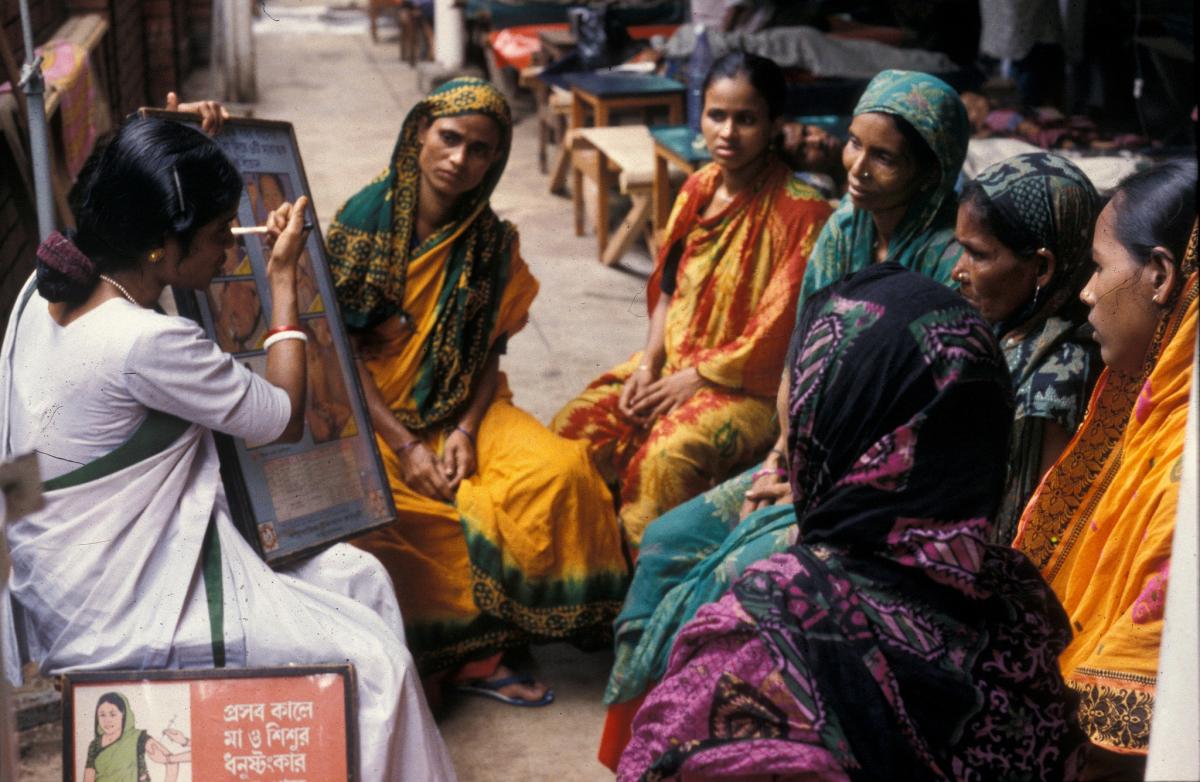
In September 2017, the Directorate General of Family Planning (DGFP) in Bangladesh developed and approved a standardized training module for community-based health workers who provide family planning services. For its implementation, the DGFP allocated 9.4 million BDT (US $113,000) from their sector development plan to support the community-based provision of short-term contraceptive methods over a five-year implementation period (2017-2022).
Previously, community-based health workers received training based on family planning modules designed for doctors and nurses. The training did not cater to their specific skills as a community provider, nor did it include job-specific aids. The DGFP recognized this gap, and worked with other health units and Advance Family Planning local partner Jhpiego Bangladesh to implement an action plan.
Between June and July 2017, Jhpiego Bangladesh advocated with the National Technical Committee and the DGFP to develop a standardized family planning training manual and job aids to improve capacity of providers at the community level. Jhpiego Bangladesh facilitated a number of advocacy meetings with the Maternal and Child Health unit, the Field Services Delivery unit, and the Clinical Contraceptive Service Delivery unit of the DGFP.
As a result, with the support of the Director General of DGFP and other units, the Field Services Delivery unit convened the National Technical Committee, including both government and civil society partner representatives in the meeting. The committee approved terms of reference and divided into three small working groups to develop the technical content on short-acting, long-acting, and permanent methods and counseling and management information systems. The Field Services Delivery unit leadership finalized and formally approved the manual and job aids while Jhpiego Bangladesh facilitated the advocacy process and provided technical support for content development.
Following the approval of the training module, Jhpiego Bangladesh worked with the DGFP to identify and secure a budget allocation to implement the approved training. Moving forward, the DGFP will conduct phased training for community health care providers using their own master trainers in 100 Upazilas (district sub-units) per year over the next four years. Jhpiego Bangladesh will continue to work with the DGFP and other stakeholders to improve access to family planning at the community level by integrating family planning into existing health service delivery strategies and platforms, and leveraging the available frontline health workforce for counseling and service provision.

